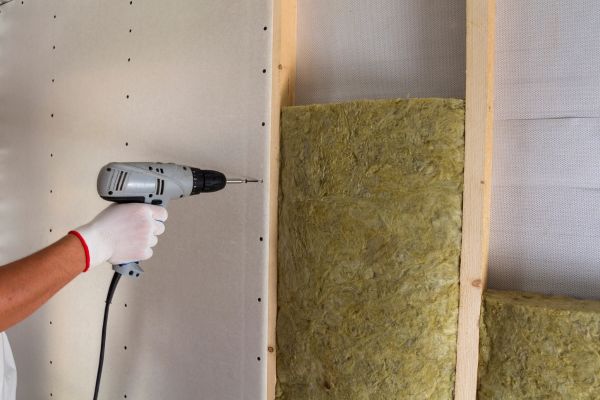This page may contain affiliate links. If you click and buy, we might get a small commission at no cost to you.
Homeownership is a significant milestone in many people’s lives, often symbolizing stability, success, and personal achievement. However, it comes with its own set of challenges and responsibilities that go beyond the initial financial investment.
Whether you’re a first-time homebuyer or you’ve been through the process before, there are always new lessons to learn and unexpected hurdles to navigate. Here are some tips about home ownership that you might not have thought of, aimed at helping you manage your property more effectively and enjoy your home to the fullest.
1. Embrace Preventative Maintenance
One of the most overlooked aspects of homeownership is the importance of preventative maintenance. Regularly checking and maintaining your home’s systems and structures can save you a significant amount of money and hassle in the long run.
This includes tasks like cleaning gutters, servicing your HVAC system, checking for roof damage, and sealing any cracks or gaps in windows and doors. Preventative maintenance not only helps avoid major repairs but also extends the lifespan of many parts of your home.
2. Get to Know Your Neighbors
While it may not seem directly related to homeownership, building a good relationship with your neighbors can have numerous benefits. Not only does it create a friendly community atmosphere, but it can also be practical in terms of security and support.

Neighbors can keep an eye on your property when you’re away, share advice and tools, and help in emergencies. Community apps or social media groups are great ways to stay connected and informed about neighborhood activities and concerns. But you don’t have to become best friends with everyone, if you prefer to live a private life.
3. Understand Your Home’s Unique Character
Every home has its quirks and characteristics, especially if it’s not a new build. Spend time getting to know how your home “behaves” in different seasons, what kind of maintenance it requires, and any peculiarities in its construction or systems.
This knowledge can be invaluable when it comes to troubleshooting issues, planning renovations, or simply making your home more comfortable and efficient.
4. Budget for Unexpected Expenses
Homeownership often comes with unexpected expenses, from emergency repairs to property tax increases. It’s wise to create a home maintenance fund where you regularly set aside money for these unforeseen costs.

Financial experts often recommend saving 1-3% of your home’s purchase price annually for maintenance and repair costs. Having this financial buffer can reduce stress and prevent you from dipping into savings or emergency funds.
5. Invest in Quality Over Time
It’s tempting to complete all your desired home improvements and purchases right away, but spreading out these investments can be more manageable and financially prudent. Prioritize projects based on necessity and impact, focusing on quality materials and workmanship.
This approach not only spreads out the financial burden but also allows you to enjoy the process of gradually personalizing and upgrading your home.
6. Learn Basic DIY Skills
Having some basic DIY skills can be a lifesaver for a homeowner. Simple tasks like fixing a leaky faucet, painting a room, or unclogging a drain can save you money and give you a sense of accomplishment.
There are countless tutorials and classes available online and in local community centers that can teach you the basics of home repair and improvement.

7. Understand Your Insurance Coverage
Make sure you thoroughly understand what your homeowners’ insurance covers and what it doesn’t. This may seem obvious, but many homeowners find themselves surprised by the limitations of their policies after an incident occurs.
Review your policy annually and consider additional coverage for natural disasters, personal property, or increased home value due to improvements.
8. Plan for Long-Term Energy Efficiency
Investing in energy efficiency is not only good for the environment but also reduces your utility bills in the long run. Consider upgrading to energy-efficient appliances, installing better insulation, and using smart home technologies to control heating, cooling, and lighting.
Solar panels might require an upfront investment but can offer significant savings and even earnings through net metering programs. Assess your home’s energy use and explore which improvements can offer the best returns over time.
9. Master the Art of Landscaping
Good landscaping enhances your home’s curb appeal, but it also has practical benefits such as improved privacy, reduced noise, and even lower energy bills through strategic placement of trees and shrubs. Learn about native plants that require less water and maintenance.
Consider creating outdoor living spaces that increase your home’s usable square footage and value. Remember, landscaping is more than just aesthetics; it’s about creating a functional outdoor space that complements your lifestyle.
10. Keep Records of Everything
Maintain a detailed record of all repairs, renovations, and appliance purchases, including warranties and service contacts. This information is invaluable for future maintenance, resolving warranty issues, and enhancing your home’s resale value by proving the care and investments you’ve made in the property. A well-organized home maintenance file can save you time and money, making it easier to manage your home efficiently.

11. Update Your Home for Safety and Accessibility
As you live in your home, consider updates that improve safety and accessibility. This could mean installing grab bars in bathrooms, ensuring there are smoke and carbon monoxide detectors on every floor, or even planning for first-floor living as you age.
These improvements not only make your home safer for you and your family but can also increase its appeal and value by making it accessible to a broader range of buyers in the future.
12. Explore Tax Deductions and Credits
Homeownership can offer various tax benefits, such as deductions for mortgage interest and real estate taxes. Additionally, you may qualify for tax credits for energy-efficient home improvements or renewable energy installations.
Stay informed about current tax laws and consider consulting a tax professional to maximize your benefits. These financial incentives can help offset some costs of homeownership and improvements.
13. Regularly Review Your Mortgage and Refinance Options
Mortgage rates and your financial situation can change over time. Regularly reviewing your mortgage and the current market conditions can reveal opportunities to refinance and save on interest, reduce your monthly payments, or even pay off your home sooner. Be aware of the costs associated with refinancing and calculate the break-even point to ensure it’s a financially sound decision.
14. Prepare for Changing Space Needs
Your family’s needs and how you use your home will evolve over time. Rooms might need to be repurposed, or additional space may become necessary. Plan for flexibility in how rooms are used and consider the potential for future expansions or modifications. Thinking ahead about your space requirements can help you make incremental changes without requiring major renovations down the line.

15. Engage with Your Local Community and Government
Understanding local zoning laws, property taxes, and community regulations is crucial for homeowners. Engage with your local community board or homeowners’ association to stay informed about any changes that could affect your property.
Participation in community meetings can also provide insights into local developments, infrastructure projects, and community resources that may impact or benefit your home and lifestyle.


